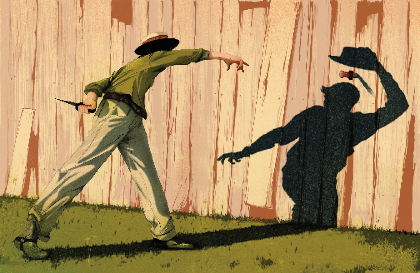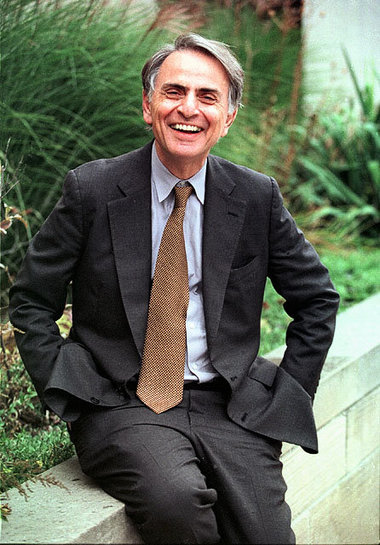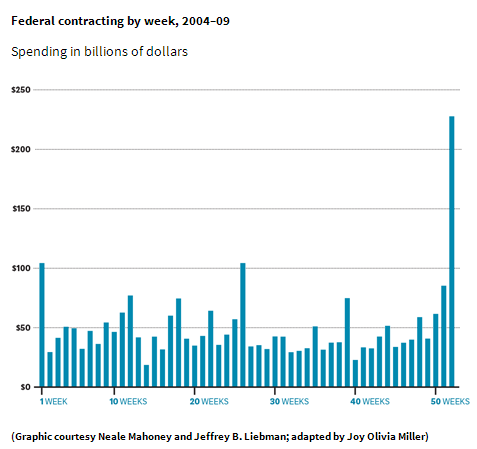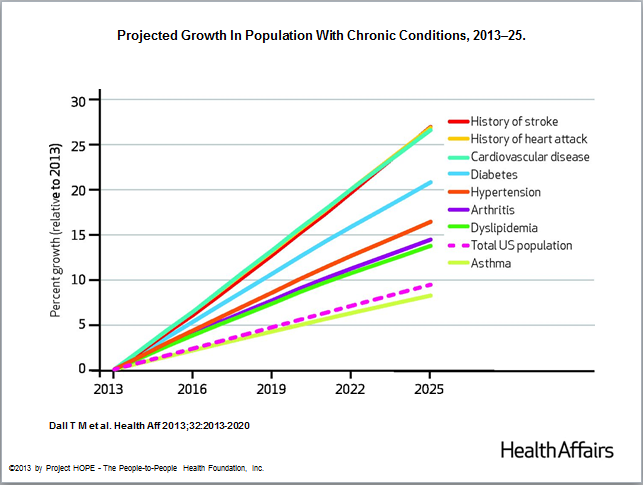 “If you insure them, they will come.” Those words might as well be the mantra of hospitals across the country, because they can expect an onslaught of customers thanks to the expansion of health insurance under Obamacare. A recent study published in Science showed increased emergency room use among people in Oregon who became eligible for Medicaid, compared to others who, literally by the luck of the draw, were not chosen to be eligible. With many ERs already overcrowded, emergency room clinicians will be forced to send some patients home that are not ready and to admit other patients to the hospital that do not need such care. In fact, Medicare analyses show that almost half of unnecessary expenses result from brief and unnecessary hospital admissions.
“If you insure them, they will come.” Those words might as well be the mantra of hospitals across the country, because they can expect an onslaught of customers thanks to the expansion of health insurance under Obamacare. A recent study published in Science showed increased emergency room use among people in Oregon who became eligible for Medicaid, compared to others who, literally by the luck of the draw, were not chosen to be eligible. With many ERs already overcrowded, emergency room clinicians will be forced to send some patients home that are not ready and to admit other patients to the hospital that do not need such care. In fact, Medicare analyses show that almost half of unnecessary expenses result from brief and unnecessary hospital admissions.
How can already busy emergency rooms efficiently handle all this extra business?…(Read more and view comments at Forbes)
A New Look at Self-Deception
As a behavioral scientist, I have long been interested in self-deception. But I’ve never thought about it this way before, as pictured in a tremendous drawing by Jonathan Bartlett:

What Science Can’t Teach Us
Thanks to science, we are confronted with new discoveries every day. But there are some things that science can’t teach us, and which we need to learn without its help. This point was made marvelously in an essay in the Atlantic monthly by Clancy Martin, who was discussing the increasing number of popular books written by philosophers. In that essay, Martin supplied a wonderful quote from Soren Kierkegaard which I thought I would share with you:
Whatever the one generation may learn from the other, that which is genuinely human no generation learns from the foregoing … Thus, no generation has learned from another to love, no generation begins at any other point than at the beginning, no generation has a shorter task assigned to it than had the previous generation.
I would add to this that no adolescent seems to want to learn any of these lessons from their parents either. But that would be changing topics.
Why I Read
 I read for lots of reasons, of course. For entertainment. For information. For intellectual stimulation. To fill up a rainy day, since I can’t play piano for eight hours at a time. But another reason to read is to make me a better writer. In a wonderful essay in the Atlantic monthly, Richard Bausch makes this point eloquently. Here is a tidbit from that essay, in which he laments the huge industry that has blossomed to provide people with “how to write” manuals. He thinks those manuals are a bad idea:
I read for lots of reasons, of course. For entertainment. For information. For intellectual stimulation. To fill up a rainy day, since I can’t play piano for eight hours at a time. But another reason to read is to make me a better writer. In a wonderful essay in the Atlantic monthly, Richard Bausch makes this point eloquently. Here is a tidbit from that essay, in which he laments the huge industry that has blossomed to provide people with “how to write” manuals. He thinks those manuals are a bad idea:
There are too many “how-to” books on the market, and too many would-be writers are reading these books in the mistaken idea that this will teach them to write. I never read such a book in my life, and I never will. What I know about writing I know from having read the work of the great writers. If you really want to learn how to write, do that. Read Shakespeare, and all the others whose work has withstood time and circumstance and changing fashions and the assaults of the ignorant and the bigoted; read those writers and don’t spend a lot of time analyzing them. Digest them, swallow them all, one after another, and try to sound like them for a time. Learn to be as faithful to the art and craft as they all were, and follow their example. That is, wide reading and hard work.
I suggest you check out the rest of his essay. Maybe reading it will make you into a better writer!
(Click here to view comments)
Interesting Government Nudge
Do you think this will work to get people to stop texting and driving?

Has the Obamacare Medicaid Expansion Already Reached Its Peak?
The Affordable Care Act expanded Medicaid eligibility this year in those states which decided to follow its provisions. That means lots of people are now newly eligible for Medicaid. However, the number of people signing up for Medicaid in the states has been underwhelming. Which raises a question: how much can we expect enrollment numbers to increase over the next few years?
To begin to answer that question, a group of researchers studied what happened in four locations – California, Connecticut, Minnesota and Washington DC – which in 2010 chose to expand their Medicaid coverage earlier than required, for low income childless adults. The researchers studied how quickly these newly eligible people signed up for Medicaid…(Read more and view comments at Forbes)
Humbling Words from Carl Sagan
 The Cornell Alumni Magazine had a wonderful article recently, on its famous former professor, Carl Sagan. Here is my favorite Sagan quote from that article:
The Cornell Alumni Magazine had a wonderful article recently, on its famous former professor, Carl Sagan. Here is my favorite Sagan quote from that article:
Look again at that dot. . . . On it everyone you love, everyone you know, everyone you ever heard of, every human being who ever was, lived out their lives. . . .
The Earth is a very small stage in a vast cosmic arena. Think of the rivers of blood spilled by all those generals and emperors so that, in glory and triumph, they could become the momentary masters of a fraction of a dot. Think of the endless cruelties visited by the inhabitants of one corner of this pixel on the scarcely distinguishable inhabitants of some other corner; how frequent their misunderstandings, how eager they are to kill one another; how fervent their hatreds.
Our posturings, our imagined self-importance, the delusion that we have some privileged position in the universe, are challenged by this point of pale light. Our planet is a lonely speck in the great enveloping cosmic dark. In our obscurity, in all this vastness, there is no hint that help will come from elsewhere to save us from ourselves. . . .
There is perhaps no better demonstration of the folly of human conceits than this distant image of our tiny world. To me, it underscores our responsibility to deal more kindly with one another, and to preserve and cherish the pale blue dot, the only home we’ve ever known.
And I guess there is no better way to demonstrate the folly of me ever trying to be a great writer than to peruse those profound paragraphs.
(Click here to view comments)
Last Minute Government Shopping
First a quick apology – this post is a bit outside of my normal range of topics. But I thought I would share it with you anyway. This is a picture from the University of Chicago Magazine, showing spending on federal contracts by week of the year. That tall bar on the very right – that’s the last week of the fiscal year, when all kinds of government agencies realize if they don’t spend money soon, they will never spend it because they will be on to the next budget season. For link to the magazine article on this topic, which also suggests a way to improve this ridiculous practice, click here.

More on Burritos and Calories at Chipotle
 Sarah Kliff, one of my favorite journalists, had a really nice write up on the burrito study recently published by a wonderful student at Duke, Peggy Liu. Here is an excerpt from her write up, and a link to the full article:
Sarah Kliff, one of my favorite journalists, had a really nice write up on the burrito study recently published by a wonderful student at Duke, Peggy Liu. Here is an excerpt from her write up, and a link to the full article:
For anyone counting calories, the Chipotle menu may be among the world’s least helpful documents.
The ranges on menu items are so vast that, depending on what your order looks like, a burrito could have 350 or 970 calories – nearly a threefold difference. (Never mind that it is nearly impossible to order the lowest-calorie Chipotle burrito, which consists of a flour tortilla with beans.)
This is a problem that lots of fast food chains are confronting now that the health care law requires them to post calorie counts on their menus… (Read more here)
Obesity Is the Future of Chronic Disease
In a recent post, I excoriated athletes like LeBron James and Peyton Manning for endorsing unhealthy junk foods – for fattening their wallets by fattening our population. A recent study in Health Affairs provides a powerful illustration of the future effects of these fatty foods. The study is a rather dry and technical one, involving statistical predictions of population health demographics (Zzzz) using a health care Demand Microsimulation Model (Double Zzzz). Study methods aside, however, the authors paint a clear picture of what chronic diseases will look like in the next decade. Here’s one of those pictures:

In recent years, we have made a bit of progress in combatting obesity in the U.S. The CDC reported in 2013, for example, that some states are seeing a decline in obesity rates among children. But this decline is still tiny in comparison to the rapid growth rate of obesity. According to the CDC, more than 1/3 of U.S. adults are obese, with medical costs of obesity running near $150 billion annually.
$150 billion!
The Health Affairs study pictured above shows that these costs are likely to rise dramatically over the next decade. We have lots of work to do still, to get our obesity problem under control. We literally cannot afford to ignore this problem.
(Click here to view comments)
